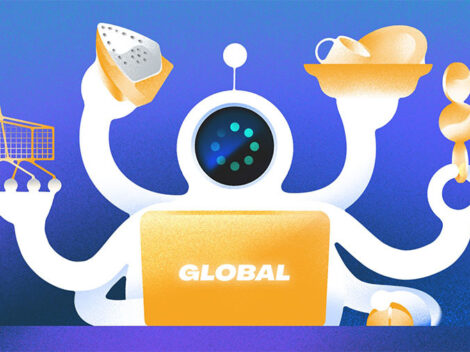Apple’s recent privacy changes will not spell the end for adtech companies, but will force companies in the industry to rely on new tech and innovation as users demand more privacy.
Subscribe to the Crunchbase Daily
The changes — as many people have seen on the commercials and the pop ups on their phones — went into effect less than two months ago and allow users to opt out of ID for Advertisers, or IDFA as they are commonly called. Those IDFAs allow advertisers to track iOS users’ activity across apps to better target ads and measure the effectiveness of their campaigns.
Those new rules also do not appear to be going away. Earlier this week during its annual Worldwide Developers Conference, Apple said its upcoming iOS 15 update will give iPhone users even more control over their privacy and see more detail about where their data is going. Users of the new iOS will be able to see who their apps are sharing data with and keep internet activity more private.
Those enhancements to user privacy will affect an advertising market that saw more than $2.7 billion in venture invested globally in it last year and is already at $3.2 billion this year, according to Crunchbase numbers. Mobile advertising specifically only makes up a small fraction of those dollars — with about $278 million in venture coming in last year.
“Apple’s moves should send a signal to startups that they should take privacy issues seriously at an early stage,” said Christine Tsai, CEO and founding partner at 500 Startups and an investor in adtech.
“They’re less costly to implement while companies are still young, which is what we’re encouraging our startups to do as part of our (environmental, social and governance) initiative,” said Tsai, who was part of the original technical support team that helped launch Google AdSense.
Bracing the industry
While the changes just recently went into effect, adtech companies — especially those in mobile — were not caught off guard.
“We’ve been preparing for this for years,” said Jeremy Bondy, CEO of Blackstone-backed mobile ad and in-app monetization company Vungle.
Vungle, which serves up about 9 billion ads every month for its clients, started prepping for the changes in 2018, a couple of years before Apple officially announced them, Bondy said.
Those preparations included buying Finland-based GameRefinery in March. GameRefinery is able to offer deep contextual data sets across gaming apps, allowing advertisers to deliver relevant campaigns without IDFAs.
In October, Vungle also bought Los Angeles-based AlgoLift — which relies on anonymized data and delivers “a unique solution to Apple’s upcoming iOS-related privacy changes,” the company said in a release.
Bondy said data and machine-learning technologies will be used more as companies will rely on “probabilistic targeting” to reach their audience since identities will be held back.
Bondy and others also point out that while IDFA data may be harder to come by, Apple also has introduced its SKAdNetwork which gives less granular data and hides the user’s identity, but allows marketers to measure conversion rates.
Harder road ahead for some
However, not all companies will be able to overcome the privacy changes through deals, data and new tech.
Mobile measurement partners — or MMPs — are third-party platforms that track and visualize mobile app data to give marketers a fuller view of a campaign’s performance and tell companies when a user has been delivered, Bondy said. Without IDFAs, knowing where that user came from will be impossible, meaning those companies likely will have to innovate and add products, he added.
Anurag Agrawal, vice president of product at Redwood City, California-based mobile ad platform Moloco — which became a unicorn after its Series C funding in April — said he believes retargeting companies that rely on knowing the IDFA or the device in order to send them ads of brands and products they have already viewed likely will be most affected by some of the new changes in privacy by Apple.
While Bondy believes Apple’s rollout of the privacy changes was “clunky,” with timelines changing, he understands the dilemma.
“From a consumer perspective, it makes perfect sense,” he said. “From our perspective, we want to present relevant content while respecting privacy.”
While it is clear people want more privacy, Agrawal said he also could see the new rules favoring large tech giants like Facebook and Google that do not need to rely on third-party data as much as most.
“I think this might tilt the playing field even more,” he said.
Nevertheless, Agrawal said he also understands privacy is a top concern of many users, and if companies like Apple want to sell devices they also must adopt it as a primary objective.
“I think we are getting to the point where users want more privacy,” he said. “Apple is responding to that.”
Illustration: Dom Guzman

Stay up to date with recent funding rounds, acquisitions, and more with the Crunchbase Daily.


![Image of multiuse agentic AI/robot North America quarterly[Dom Guzman]](https://news.crunchbase.com/wp-content/uploads/year-of-agentic-ai-quarterly-north-america-470x352.jpg)


![Image of robotic figures racing to an IPO finish line, to illustrate companies heading toward the public markets. [Dom Guzman]](https://news.crunchbase.com/wp-content/uploads/IPO-race-470x352.jpg)
![Illustration of a guy watering plants with a blocked hose - Global [Dom Guzman]](https://news.crunchbase.com/wp-content/uploads/quarterly-global-3-300x168.jpg)
67.1K Followers